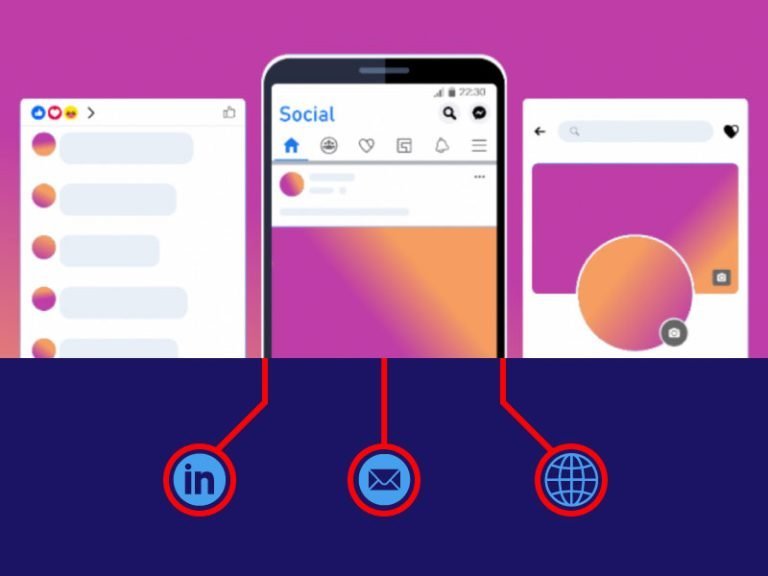Facebook has become a crucial platform for businesses, marketers, and individuals to connect with their audience through posts, images, and videos.
However, there are instances when the need arises to extract posts and pictures from a Facebook page for research, analysis, or even re-sharing on other platforms.
Whether you’re a digital marketer, content creator, or simply interested in managing Facebook content, the ability to extract posts and images from Facebook is a valuable skill.
In this article, we will explore the most effective methods for extracting Facebook posts with images while also highlighting the importance of privacy, security, and ethical content usage.
Manual Method
The manual method, while it may take a bit of time, offers a level of control and efficiency that is unmatched. It allows you to handpick the exact content you need, ensuring you’re always in control of what you’re extracting.
Steps for Manual Extraction
Access the Facebook Page: Log into your account and navigate to the page from which you wish to extract content.
Locate Posts with Images: Scroll through the page feed and identify the posts containing the images you want to download.
Download the Images:
Click on the image to enlarge it.
Right-click on the image and select “Save image as…” to download it to your computer.
Copy Post Text: Highlight the post’s text, right-click, and choose “Copy.” Paste the copied text into a document or note for future use.
Advantages of the Manual Method
- Complete control over the posts and images you choose to extract.
- No technical skills or additional tools are required.
- You manually filter and select content, which helps avoid unintentional data breaches or violations.
Using Facebook’s Data Download Feature
Facebook’s data download feature is a powerful tool that allows you to download all your data, including posts, photos, and videos, with ease. While it’s primarily designed for personal use, it can be a valuable resource for businesses and marketers, providing a sense of reassurance and confidence in managing their Facebook content.
Steps to Download Your Data from Facebook
Access Facebook Settings: In the top-right corner of your Facebook homepage, click the arrow, navigate to “Settings & Privacy”,” and then choose “Settings”.”
Download Your Information: The option to “Download Your Information” is under the “Your Facebook Information” tab.
Select the Content to Download:
You’ll be given options to download posts, photos, and videos, among other types of content.
Select the date range, file format (HTML or JSON), and media quality.
Download the Data: Once you’ve selected it, click “Create File.” Facebook will notify you when the file is ready to download.
Benefits of Using the Data Download Feature
- It is ideal for bulk downloading of posts and images.
- Facebook organizes your content for you, making extracting the data you need easy.
- Helps archive all your Facebook data in one place.
Third-Party Tools and Automation
While some third-party tools and scripts can automate downloading posts and images from Facebook, they often pose risks.
Automated tools may violate Facebook’s terms of service, and using them could result in account restrictions or security vulnerabilities.
If you explore third-party solutions, do so cautiously and prioritize tools that comply with Facebook’s terms.
Sharing Extracted Content
Once you’ve successfully extracted posts and images from Facebook, sharing them on other platforms (or even using them for marketing campaigns) becomes easy.
For Text Content: You can simply paste the extracted text into a blog, article, or social media post.
For Images, Upload directly using the platform’s upload features. For example, on most blogging platforms or content management systems (CMS), you can upload photos via an image or paperclip icon.
Important Note: Always ensure you have the right to share the content publicly. If the content includes images of people or copyrighted material, ensure you have the proper permissions.
Ethical and Legal Considerations
While the act of extracting content from Facebook may seem innocuous, it’s crucial to approach this practice with responsibility. Facebook has stringent guidelines on how its content can be used, and breaching these guidelines can result in account suspension or legal action. It’s important to always respect privacy and copyright laws when extracting and using content from Facebook.
Respect Privacy: Always ensure the posts and images you extract don’t violate anyone’s privacy. This is especially important if the content includes personal information or identifiable individuals.
Respect Copyright: Just because content is publicly available on Facebook doesn’t mean it’s free to use. Ensure you have the appropriate permissions before using or sharing copyrighted images or text.
Use Ethically: Whether you’re a business, a researcher, or a content creator, ensure that any content you extract is used ethically and for the intended purpose. Misusing someone else’s content can harm your reputation and legal standing.
Conclusion
Extracting posts and images from a Facebook page can be a helpful tool for marketers, researchers, and businesses, but following best practices and respecting privacy laws is essential.
Whether you extract manually, use Facebook’s own, or explore automated solutions, always ensure that you comply with Facebook’s guidelines and use content ethically.
By doing so, you can make the most of your extracted content while maintaining the trust of your audience and adhering to legal standards.



